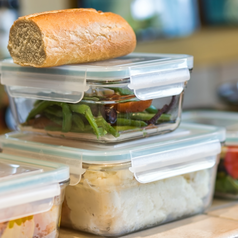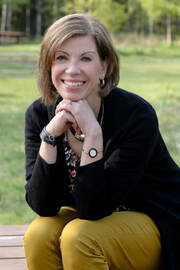
In the blog, I talked about two fathers, one named Papa, who coined this phrase, and the other named Dad, my father. In the blog I wrote,
‘Every time there was a special occasion, like Christmas or Thanksgiving, we had a big beautiful healthy meal in our home. The table was filled with all our own vegetables, and most often there was home- raised meat, or fresh turkey from a neighbour, in the oven. On every special occasion, and on many regular Sundays, once our meal was fully prepared and ready to be served, Dad would ask for an extra plate. He’d fill it, heaping full. ‘I’ll be back in a few minutes’, he would say. I’ll just take this around to Mr. Dwyer. We would wait the fifteen or so minutes this little trip would take, then sit down to eat together.’
One of the responses I received was this, ‘This is very touching. I love that your dad delivered Mr. Dwyer his dinner before you all ate versus sending him the leftovers after’
This response, while really just restating what I had written, was incredibly insightful. It has given me great pause this week, to think about the message we were being sent not only about helping people, but about how we help them. I never once, until I read that comment, considered the timing of Dad’s delivery. Nor had I thought deeply about leftovers. I had always taken for granted that we were being served our dinner at that time, so it followed this would be the natural time for someone sharing our food to eat then too. I also never once considered exactly what we were sending to Mr. Dwyer, leftovers, or the real meal. I just knew that Dad heaped a plate full, enough for several meals, and he drove it over to Mr. Dwyer’s run-down house, came back, and then we sat together to eat. However, reading the comment, and reflecting on it, I realized that the timing of Dad’s delivery was not accidental, and the impact it has had on me and my siblings has been lasting.
By definition, leftovers are something, especially food, remaining after the rest has been used or consumed. This week though, when I’ve thought of leftovers, I haven’t been thinking of food at all. I’ve thought of the definition this way:
Leftovers: something remaining after the rest has been used.
I don’t wonder why I’ve never considered Dad’s lesson about caring for others to be about food. It was never about food. I do wonder why, until now, I’ve never considered what the real lesson was. It was about a way of showing up in this world. Dad, though quiet about helping Mr. Dwyer, had opinions about many things. It would have been around our dinner table he would have firmly told us, ‘You are no better, or worse, than anyone else in this world. Don’t ever start to think you are.’ I think these were the words that sang in harmony with my dad’s actions of taking a plate to Mr. Dwyer before we ate. Mr. Dwyer, although often drunk, and with vile language and shocking stories of his fights, with his mental illness and isolation and run-down shack of a home, was considered to be, by our father, no better or worse than us. His behaviour was worse, and Dad never made excuses for that, but he, himself was not. I suppose Dad could have said, ‘There but for the grace of God go I’ or something profound, but he never did. He just delivered food; delicious, warm, well-made, freshly prepared, straight-from-the-oven, food. The same food he served his own children.
Dad lived this way in all parts of his life. He never brought leftovers anywhere. He worked at a factory, in the boiler room of a large oil refinery. He was a shift worker, and proud to do a good job there. He took his job seriously and worried about the safety of the workers in the plant. He showed up on time and stayed until he could safely turn his shift over to the next worker. He must have often been exhausted, trying to get a few hours sleep at home after a midnight shift, with the hustle and bustle of a big family around him. And yet he did not show up to work bringing leftover energy. He brought his best.
The same was true for home. When he arrived home, there was a farm to run. He never showed up with leftovers here either. The work was hard and often timing was determined by Mother Nature, not his sleep schedule. And yet, he showed up on the farm seeming fresh, not like he was managing to arrive with only his leftover energy.
The same could be said of his whole life. He had more than his share of aches and pains, with serious life-threatening illness finding a home in him more than once, yet he continued to refuse to serve us leftovers. We, our family and the entire community, got the best of him. We did not get his leftovers. If he was finished on the tractor, he could be found volunteering with the local Optimist Club, parking cars for full days on weekends at big events or serving hundreds at local beef barbeques. I can still picture him in the kitchen in the evening, rubbing horse liniment on his hands to reduce the pain in his joints, all the while asking if we’d like to play cards. No leftovers there.
There were ten children to feed around our table. We were not rich. I found out long after I had grown up that Dad had spent many, many hours worrying about money and how he could provide for us. But we were not saddled with this burden. Dad shared what he had as if he had had plenty to spare. This was the action we witnessed and the message we clearly received.
Dad had no problem with leftovers, and neither do his kids. His lunchbox was packed with them more often than not. If there was food leftover after a meal, Dad often made it into some warm concoction for breakfast the next day, serving it up as if it were out of a gourmet magazine. It was of course, not gourmet. It was most often leftover fried potatoes with some green beans mixed in. So, leftovers were not missing from our plates.
We were, however, taught not to serve them as the main course of our lives.
My inquiry for you this week is, ‘What am I serving?’
Elizabeth is a certified professional Leadership Coach, and the owner of Critchley Coaching. She is the founder and president of the Canadian charity, RDL Building Hope Society. She works with corporations, non-profits and the public sector, providing leadership coaching. She creates and facilitates custom workshops for all sizes of groups. She has expertise in facilitating Strategic Plans for organizations and for conducting leadership reviews. Contact Elizabeth to learn to show up serving your main course.


 RSS Feed
RSS Feed